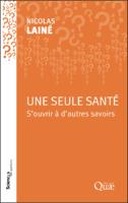Explore

Since the Covid-19 pandemic, the One Health initiative has been widely endorsed by politicians and scientists alike, highlighting the interdependence between human, animal and environmental health, and bringing these disciplines together around a single approach. Putting One Health into practice now leads to reflect on the integration of other forms of health knowledge, in particular that of local communities. Drawing on his fieldwork experiences in Asia, Nicolas Lainé shows that local knowledge is dynamic and constantly in recomposition. He highlights the contribution of certain local practices to health risk prevention. Reduced to the provision of information or data, the holders of this “other” knowledge are often excluded from the knowledge production process. On the contrary, the author proposes to integrate all the richness and complexity of relationships with living beings into a networking of local human and non-human knowledge, considering all stakeholders as full partners in research. Starting with the promises and rise to power of the One Health approach, this book takes a broader look at what makes science.
This book is included in DOAB.
Why read this book? Have your say.
You must be logged in to comment.
Rights Information
Are you the author or publisher of this work? If so, you can claim it as yours by registering as an Unglue.it rights holder.Downloads
This work has been downloaded 28 times via unglue.it ebook links.
- 28 - pdf (CC BY-NC-ND) at OAPEN Library.
Keywords
- animal health
- Biodiversity
- Environment
- fauna
- flora
- Human health
- Territories and rural areas
- thema EDItEUR::M Medicine and Nursing::MB Medicine: general issues::MBN Public health and preventive medicine
Links
DOI: 10.35690/978-2-7592-4036-4Editions

